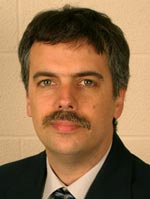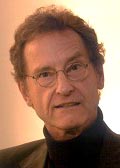| Mr. Justice Frank Iacobucci, B.Com. (UBC) 1961; LL.B. (UBC) 1962; LL.M. (Cambridge) 1964; Dip. Int'l L. (Cambridge) 1966. He was called to the Bar of Ontario, 1970 and was awarded a Q.C. by the Federal government in 1986. In 1987, he was awarded the Law Society Medal of the Law Society of Upper Canada. He has been awarded honorary degrees from the University of British Columbia, the University of Toronto, the University of Victoria, the University of Ottawa and the Law Society of Upper Canada. In 1993, the Italian Government conferred upon him the honour of Commendatore dell'Ordine Al Merito della Repubblica Italiana. In 1999 he was made an Honorary Fellow of St. John's College, Cambridge University, and of the American College of Trial Lawyers. He has also received special awards from Italo-Canadian and multicultural communities in Vancouver, Montreal and Toronto, and has been made an honorary citizen of Mangone, Cosenza, Italy. He joined Dewey, Ballantine, Bushby, Palmer & Wood of New York, New York in 1964 and specialized in corporate law and related fields until 1967. In 1967, he became Associate Professor of Law of the University of Toronto, and was a Professor of Law at the University of Toronto from 1971 to 1985. The Honourable Mr. Justice Iacobucci was appointed Associate Dean, Faculty of Law, University of Toronto in 1973, Vice-President, Internal Affairs in 1975, Dean of the Faculty of Law in 1979, and was Vice President and Provost of the University of Toronto from November 1983 to September 1985, at which time he was appointed Deputy Minister of Justice and Deputy Attorney General for Canada. In September 1988 he was appointed Chief Justice of the Federal Court for Canada. He was appointed Judge of the Supreme Court of Canada on January 7, 1991. He retired from this position in 2004, and later that year was appointed Interim President of the University of Toronto, and re-joined the University of Toronto as Professor of Law. Mr. Justice Iacobucci acted in various consulting capacities for federal and provincial departments and offices and served as a special adviser. From 1982 to 1985, he served as a member of the Ontario Securities Commission. He has also written articles and texts on a number of subjects. |

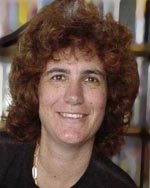 Daphne Barak-Erez LL.B. (Tel-Aviv) (summa cum laude) 1988, LL. M. (Tel-Aviv) (summa cum laude) 1991, and J. S. D (Tel-Aviv) 1993, is a professor at the Faculty of Law of Tel-Aviv University and specializes in administrative and constitutional law. She was a visiting researcher at Harvard Law School (1993-1994), a visiting fellow at the Max Planck Institute of Public Law, Heidelberg (2000), an Honorary Research Fellow at University College, London (2002). She also served as the Director of the Minerva Center for Human Rights (2000-2001) and as the Deputy Dean of the Faculty of Law (2000-2002), a Visiting Researcher at the Swiss Institute of Comparative Law (2004) and a Visiting Professor at the Institute of Federalism (Fribourg, Switzerland) (2005), the Faculty of Law of the University of Toronto (2005) and the University of Siena (2006).She was awarded several prizes, including the Rector's Prize for Excellence in Teaching, the Zeltner Prize, the Woman of the City Award (by the City of Tel-Aviv) and the Women in Law Award (by the Israeli Bar). She is the author and editor of several books, including Contractual Liability of Public Authorities (1990), Constitutional Torts (1993) and Milestone Judgments of the Israel Supreme Court (2003) (in Hebrew) and Outlawed Pigs: Law, Religion and Culture in Israel (University of Wisconsin Press, 2006, forthcoming). Her articles have appeared in journals published in the United States, Canada, England, and Israel. Among her articles in English: "From an Unwritten to a Written Constitution: The Israeli Challenge in American Perspective" 26 Column. Hum. Rts. L. Rev (1995) 309-355; "The Delusion of Symmetric Rights" 19 Oxford J. of Legal Stud. (1999) 297-311 (with Prof. Ron Shapira); "Collective Memory and Judicial Legitimacy: The Historical Narrative of the Israeli Supreme Court" 16 Canadian Journal of Law and Society/Revue Canadienne Droit et Sociéte (2001) 93-112; "Judicial Review of Politics: The Israeli Case" 29 Journal of Law and Society (2002) 611-631; "The International Law of Human Rights and Constitutional Law: A Case Study of an Expanding Dialogue" 2 I*CON - International Journal of Constitutional Law (2004) 611-632.
Daphne Barak-Erez LL.B. (Tel-Aviv) (summa cum laude) 1988, LL. M. (Tel-Aviv) (summa cum laude) 1991, and J. S. D (Tel-Aviv) 1993, is a professor at the Faculty of Law of Tel-Aviv University and specializes in administrative and constitutional law. She was a visiting researcher at Harvard Law School (1993-1994), a visiting fellow at the Max Planck Institute of Public Law, Heidelberg (2000), an Honorary Research Fellow at University College, London (2002). She also served as the Director of the Minerva Center for Human Rights (2000-2001) and as the Deputy Dean of the Faculty of Law (2000-2002), a Visiting Researcher at the Swiss Institute of Comparative Law (2004) and a Visiting Professor at the Institute of Federalism (Fribourg, Switzerland) (2005), the Faculty of Law of the University of Toronto (2005) and the University of Siena (2006).She was awarded several prizes, including the Rector's Prize for Excellence in Teaching, the Zeltner Prize, the Woman of the City Award (by the City of Tel-Aviv) and the Women in Law Award (by the Israeli Bar). She is the author and editor of several books, including Contractual Liability of Public Authorities (1990), Constitutional Torts (1993) and Milestone Judgments of the Israel Supreme Court (2003) (in Hebrew) and Outlawed Pigs: Law, Religion and Culture in Israel (University of Wisconsin Press, 2006, forthcoming). Her articles have appeared in journals published in the United States, Canada, England, and Israel. Among her articles in English: "From an Unwritten to a Written Constitution: The Israeli Challenge in American Perspective" 26 Column. Hum. Rts. L. Rev (1995) 309-355; "The Delusion of Symmetric Rights" 19 Oxford J. of Legal Stud. (1999) 297-311 (with Prof. Ron Shapira); "Collective Memory and Judicial Legitimacy: The Historical Narrative of the Israeli Supreme Court" 16 Canadian Journal of Law and Society/Revue Canadienne Droit et Sociéte (2001) 93-112; "Judicial Review of Politics: The Israeli Case" 29 Journal of Law and Society (2002) 611-631; "The International Law of Human Rights and Constitutional Law: A Case Study of an Expanding Dialogue" 2 I*CON - International Journal of Constitutional Law (2004) 611-632.
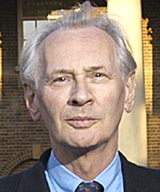

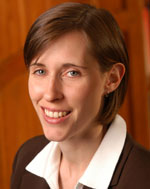
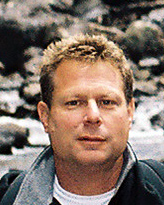 Alan Hyde, AB (Stanford) 1972, JD (Yale) 1975, is Professor and Sidney Reitman Scholar at the School of Law, Rutgers. The State University of New Jersey, Newark, New Jersey, USA. He is the author of Working in Silicon Valley: Economic and Legal Analysis of a High-Velocity Labor Market (2003), Bodies of Law (1997); the coauthor of Legal Rights and Interests in the Workplace: Cases and Materials on Labor and Employment Law (forthcoming 2006, with C.W. Summers and K.G. Dau-Schmidt) and Cases and Materials on Labor Law (2d ed., 1982, with C.W. Summers and H.H. Wellington); and has been a visiting professor at Yale, Cornell, Columbia, New York University, Cardozo, and the University of Michigan law schools. His current research projects include the game-theoretic analysis of transnational labor standards; design of a North American Free Labor Market; work relations in labor markets with extremely short tenures and rapid turnover, such as Silicon Valley, California; new bargaining structures for low-wage service workers; and new global labor markets characterized by extensive transnational outsourcing of production and labor migration. His earlier articles deal with new modes of employee representation (such as caucuses and nonmajority unions); employee stock ownership; and political models of labor legislation, among other topics. He lectures frequently on new employment relations, recently as the keynote speaker at the XII Interamerican Conference of Ministers of Labor, Montréal, October 2002. He is a director of the Association for Union Democracy, Inc., and has represented them in litigation. He has also represented the American Civil Liberties Union and its projects in litigation concerning worker privacy and constitutional aspects of worker action. Professor Hyde maintains a personal web page at
Alan Hyde, AB (Stanford) 1972, JD (Yale) 1975, is Professor and Sidney Reitman Scholar at the School of Law, Rutgers. The State University of New Jersey, Newark, New Jersey, USA. He is the author of Working in Silicon Valley: Economic and Legal Analysis of a High-Velocity Labor Market (2003), Bodies of Law (1997); the coauthor of Legal Rights and Interests in the Workplace: Cases and Materials on Labor and Employment Law (forthcoming 2006, with C.W. Summers and K.G. Dau-Schmidt) and Cases and Materials on Labor Law (2d ed., 1982, with C.W. Summers and H.H. Wellington); and has been a visiting professor at Yale, Cornell, Columbia, New York University, Cardozo, and the University of Michigan law schools. His current research projects include the game-theoretic analysis of transnational labor standards; design of a North American Free Labor Market; work relations in labor markets with extremely short tenures and rapid turnover, such as Silicon Valley, California; new bargaining structures for low-wage service workers; and new global labor markets characterized by extensive transnational outsourcing of production and labor migration. His earlier articles deal with new modes of employee representation (such as caucuses and nonmajority unions); employee stock ownership; and political models of labor legislation, among other topics. He lectures frequently on new employment relations, recently as the keynote speaker at the XII Interamerican Conference of Ministers of Labor, Montréal, October 2002. He is a director of the Association for Union Democracy, Inc., and has represented them in litigation. He has also represented the American Civil Liberties Union and its projects in litigation concerning worker privacy and constitutional aspects of worker action. Professor Hyde maintains a personal web page at 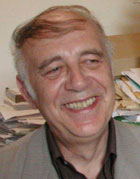 Christian Joerges is Professor of Economic Law at the European University Institute in Florence. He has studied in Frankfurt am Main and Montpellier from 1962-66 and thereafter at the Institute for International and Foreign Trade Law in Washington, D.C. He obtained his Ph.D. in 1970 in Frankfurt. He joined the Frankfurt bar in 1972. In 1973 he became a Lecturer at the University of Frankfurt and in 1974 Professor at the University of Bremen. From 1982 to 1987 and 1994-1998 he was a Co-director of the Centre for European Law and Politics there. From 1985-86 he was a Fellow at the Netherlands Institute for Advanced Study in the Humanities and Social Sciences and from 1992-93 Fellow at the Institute for Advanced Study in Berlin. His recent publications deal with the Europeanization of Economic and Private Law , transnational risk regulation, at European and international level, compliance and legitimacy problems of transnational governance arrangement and anti-liberal traditions of legal thought in Europe.
Christian Joerges is Professor of Economic Law at the European University Institute in Florence. He has studied in Frankfurt am Main and Montpellier from 1962-66 and thereafter at the Institute for International and Foreign Trade Law in Washington, D.C. He obtained his Ph.D. in 1970 in Frankfurt. He joined the Frankfurt bar in 1972. In 1973 he became a Lecturer at the University of Frankfurt and in 1974 Professor at the University of Bremen. From 1982 to 1987 and 1994-1998 he was a Co-director of the Centre for European Law and Politics there. From 1985-86 he was a Fellow at the Netherlands Institute for Advanced Study in the Humanities and Social Sciences and from 1992-93 Fellow at the Institute for Advanced Study in Berlin. His recent publications deal with the Europeanization of Economic and Private Law , transnational risk regulation, at European and international level, compliance and legitimacy problems of transnational governance arrangement and anti-liberal traditions of legal thought in Europe.